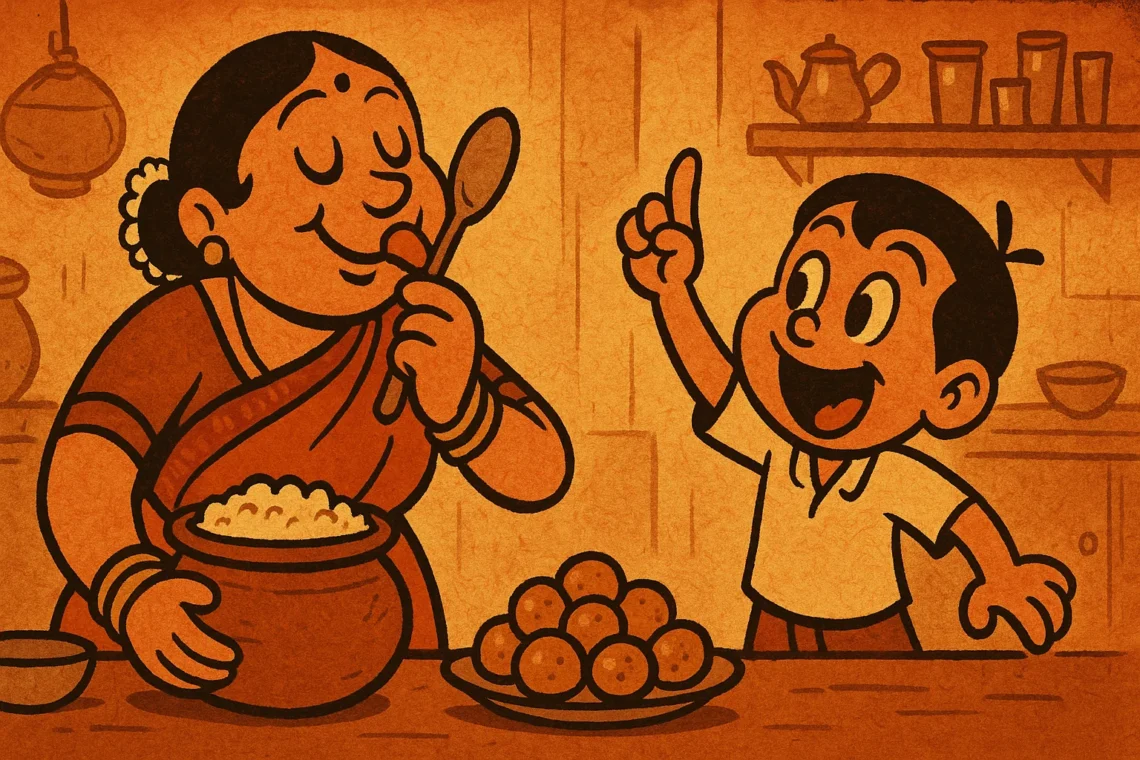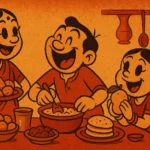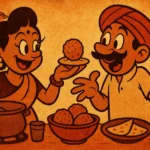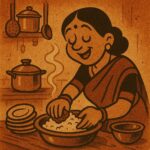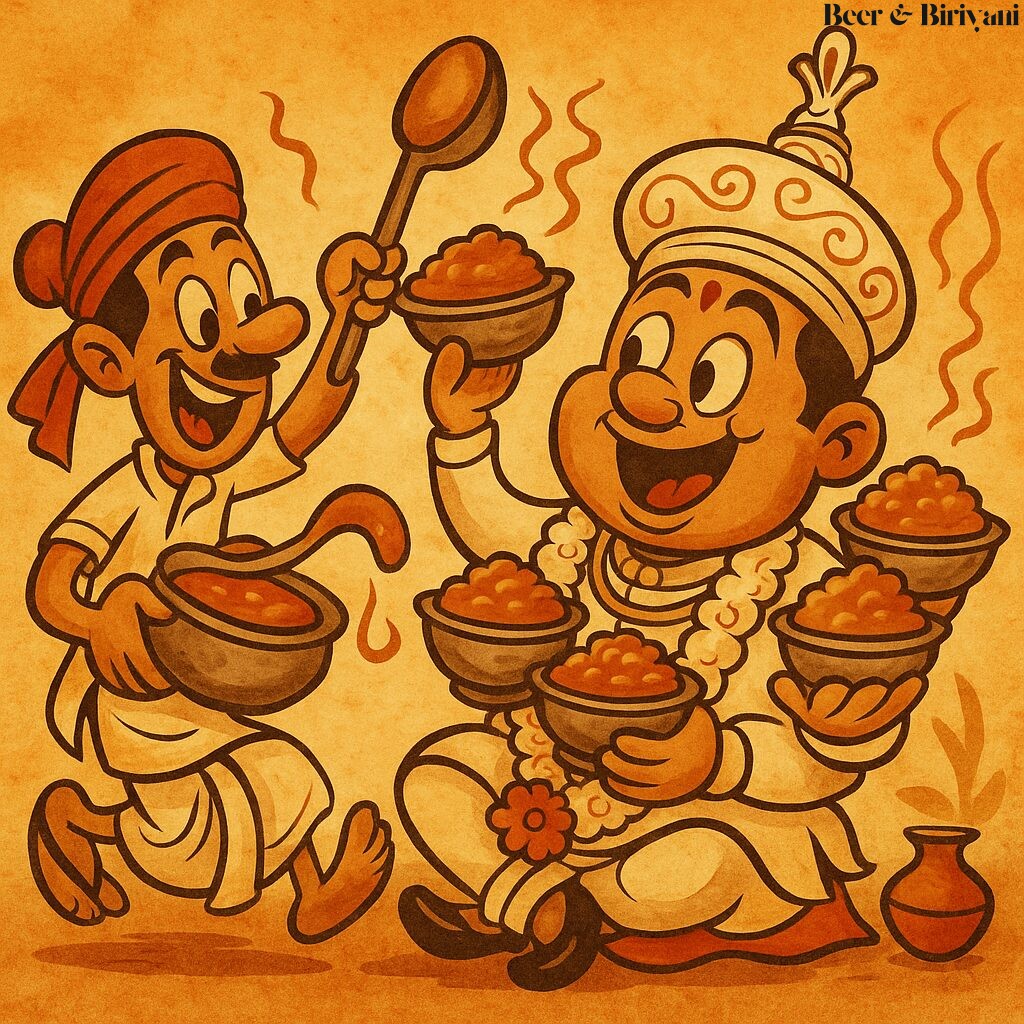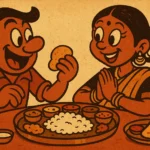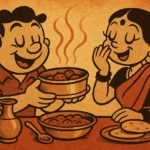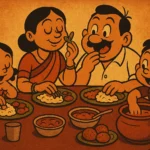It always starts innocently. You’re cooking—or maybe just stealing a taste—and you lick the spoon. A reflex. A casual motion. And then, all at once, it hits you. A memory, uninvited and vivid. You’re not in your kitchen anymore. You’re five years old, standing next to the gas stove in your childhood home, watching halwa swirl in a kadhai. Or you’re ten, dipping into a pot of dal before dinner is officially served. The taste is immediate, but the memory? That sneaks in through the back door, tugging at something soft inside you.
In Indian kitchens, tasting as you cook isn’t just allowed—it’s expected. You check salt with a finger. You blow on a spoonful to taste the spice. You adjust the jaggery by instinct. But it’s the spoon-lick, that tiny, stolen indulgence, that carries the most weight. Because what clings to a spoon isn’t just food—it’s the first hit of emotion. The concentrated version. The prelude before plating. And somehow, that one lick always takes you somewhere.
The Shortcut to Nostalgia
Sometimes, it’s mango pickle oil—tangy, spicy, and sharp enough to cut through time. Sometimes it’s the sugary crust of milk boiling down for kheer. And sometimes, it’s just plain curd, cold and familiar, tasting exactly like summer lunches from decades ago. You don’t plan to remember. You just do. Because taste, more than sound or smell, has the shortest route to memory. And when it comes via a spoon you weren’t supposed to lick just yet, it feels like a secret.
There was a spoon in our house, slightly bent, always used for stirring halwa or sweet pongal. No one washed it until the last child had licked it clean. That was the rule. The official “first taste” spoon. And we fought over it. Not for the food, really. For the moment. For the privilege of being the one who got to taste it warm, sticky, and just a little too early.
More Than Just a Taste
The spoon-lick isn’t about hunger. It’s about recognition. Sometimes, the taste is exactly what you expected. Other times, it’s just close enough to remind you of someone else’s version—your mother’s sambhar, your aunt’s chutney, your neighbour’s Sunday upma. You chase that flavor, trying to recreate it. And when, for one brief moment, you get it right, the spoon confirms it. That quick lick, that familiar balance—it tells you you’re home, even if you’re continents away.
In my kitchen now, I still do it. When no one’s looking. When the dish is almost ready. When the dal’s been simmering for hours and the tadka has just gone in. I dip the spoon, taste it mid-air, and I’m back in my grandmother’s tiled kitchen, feet not touching the floor, watching her make rasam while I hovered, spoon in hand, hoping she’d forget and leave it behind.
What the Spoon Holds
The spoon carries more than taste. It carries anxiety, curiosity, confidence. When a dish isn’t working, you lick the spoon with a frown. When it’s perfect, you smile before even swallowing. When you’re cooking for someone you love, you double check—because you want the spoon to give you approval. And when the meal’s over, the spoon sits in the sink, stained and quiet, having told all its stories without saying a word.
Licking the Spoon Is a Language
It’s how children learn flavor. How cooks calibrate care. How nostalgia gets triggered in kitchens across generations. It’s not about manners. It’s about memory. It’s the edible version of a diary entry—brief, personal, but lasting.
So the next time you find yourself licking the spoon, pause. Let the memory in. Because in that one small, slightly guilty moment, you’re not just tasting food—you’re tasting time.
Born in Mumbai, now stir-frying feelings in Texas. Writes about food, memory, and the messy magic in between — mostly to stay hungry, sometimes just to stay sane.

